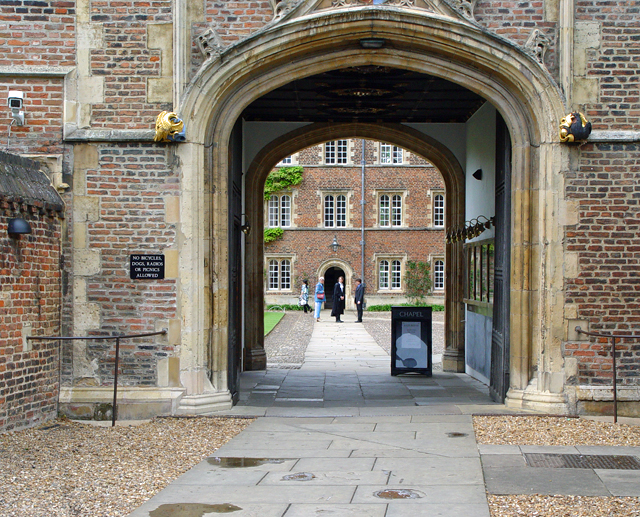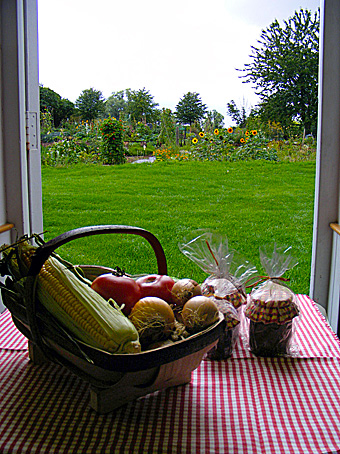|
Thomas Edwards (fl. 1810)
Thomas Edwards, LL.D. (died 4 July 1842) was an English clergyman. Life Edwards was the son of Thomas Edwards. He graduated LL.B. in 1782 from Clare College, Cambridge. In 1783 he became a fellow of Jesus College, Cambridge, taking his LL.D. degree there in 1787. He was made vicar of Hinxton in Cambridgeshire that year 1787, and was vicar of Histon from 1789 to 1808. Edwards published various sermons as well as the works listed below. N. Nisbett, rector of Tunstall, made several attacks upon Edwards's biblical criticisms. Works * (ed.) ''De Educatione Liberorum'', by Plutarch Plutarch (; grc-gre, Πλούταρχος, ''Ploútarchos''; ; – after AD 119) was a Greek Middle Platonist philosopher, historian, biographer, essayist, and priest at the Temple of Apollo in Delphi. He is known primarily for his ''P ..., with notes, 1791, 8vo. * ''A Discourse on the Limits and Importance of Free Inquiry in matters of Religion'', Butt, 1792, 8vo. * ''Remarks on Dr. Kiplin ... [...More Info...] [...Related Items...] OR: [Wikipedia] [Google] [Baidu] |
Thomas Edwards (divine)
Thomas Edwards (1729–1785) was an Anglican clergyman and divine. Life Edwards was born at Coventry in August 1729, the son of Thomas Edwards, and educated at the Free Grammar School, King Henry VIII's, there. In 1746 he entered St John's College, Cambridge, but migrated the following year to Clare Hall, graduating B.A. in 1750 and M.A. in 1754, and becoming a fellow of Clare. He was ordained deacon 1751, and priest 1753, by Frederick Cornwallis, bishop of Lichfield and Coventry. In 1755 he published ''A New English Translation of the Psalms,'' &c., and in 1758 a sermon preached at St. Michaels. In 1758 he became master of the free grammar school and rector of St. John the Baptist, Coventry. In this year he married Ann Barrott. In 1759 Edwards, published ''The Doctrine of Irresistible Grace proved to have no foundation in the Writings of the N. T.,'' a book of some importance in the Calvinist and Arminian controversy, and in 1762 ''Prolegomena in Libros Veteris Testamen ... [...More Info...] [...Related Items...] OR: [Wikipedia] [Google] [Baidu] |
Clare College, Cambridge
Clare College is a constituent college of the University of Cambridge in Cambridge, England. The college was founded in 1326 as University Hall, making it the second-oldest surviving college of the University after Peterhouse. It was refounded in 1338 as ''Clare Hall'' by an endowment from Elizabeth de Clare, and took on its current name in 1856. Clare is famous for its chapel choir and for its gardens on "The Backs" (the back of the colleges that overlook the River Cam). Clare is consistently one of the most popular Cambridge colleges amongst prospective applicants. History The college was founded in 1326 by the university's Chancellor, Richard Badew, and was originally named ''University Hall''. Providing maintenance for only two fellows, it soon hit financial hardship. In 1338, the college was refounded as ''Clare Hall'' by an endowment from Elizabeth de Clare, a granddaughter of Edward I, which provided for twenty fellows and ten students. [...More Info...] [...Related Items...] OR: [Wikipedia] [Google] [Baidu] |
Jesus College, Cambridge
Jesus College is a constituent college of the University of Cambridge. The college's full name is The College of the Blessed Virgin Mary, Saint John the Evangelist and the glorious Virgin Saint Radegund, near Cambridge. Its common name comes from the name of its chapel, Jesus Chapel. Jesus College was established in 1496 on the site of the twelfth-century Benedictine nunnery of St Mary and St Radegund by John Alcock, then Bishop of Ely. The cockerel is the symbol of Jesus College, after the surname of its founder. For the 300 years from 1560 to 1860, Jesus College was primarily a training college for Church of England clergy. Jesus College has assets of approximately £344m making it Cambridge's fourth-wealthiest college. The college is known for its particularly expansive grounds which include its sporting fields and for its close proximity to its boathouse. Three members of Jesus College have received a Nobel Prize. Two fellows of the college have been appointed to the I ... [...More Info...] [...Related Items...] OR: [Wikipedia] [Google] [Baidu] |
Hinxton
Hinxton is a village in South Cambridgeshire, England. The River Cam runs through the village, as does the Cambridge to Liverpool Street railway, though the village has no station. Hinxton parish's southern boundaries form the border between Cambridgeshire and Essex. The village is five miles (8 km) north-west of Saffron Walden and nine miles (14 km) south of Cambridge. The 2001 population was 315. Hinxton is the home of the Wellcome Genome Campus, which includes the Wellcome Sanger Institute and the European Bioinformatics Institute. History The name Hinxton is a contraction of ''Hengestestun'', "the town of Hengest". The village of Hinxton is listed in the Domesday Book of 1086 as ''Hestitona'', as ''Hyngeston'' in the Ely Registers of 1341 and ''Hengestone'' in the Ramsey Chartulary. Its parish church is the medieval St Mary and St John Church. Hinxton Hall Hinxton Hall, set on an estate of on the banks of the River Cam, is a Grade II* red-brick building built ... [...More Info...] [...Related Items...] OR: [Wikipedia] [Google] [Baidu] |
Histon
Histon is a village and civil parish in the South Cambridgeshire district, in the county of Cambridgeshire, England. It is immediately north of Cambridge – and is separated from the city – by the A14 road (England), A14 road which runs east–west. In 2011 the parish had a population of 4655. Histon forms part of the Cambridge built-up area. Over the years the Histon and the neighbouring village of Impington have grown and entwined together, to such an extent that many villagers today do not know where one ends and the other begins. They contain a combined total of six public house, pubs. They have nursery, infants', junior and secondary schools. The International Whaling Commission is based in Impington; Histon hosts the radio station Heart 103 (formerly Q103), which covers Cambridge, Ely, Cambridgeshire, Ely, Newmarket, Suffolk, Newmarket, Huntingdon and Royston, Hertfordshire, Royston. Histon hosted a main office of the East of England Development Agency, an agen ... [...More Info...] [...Related Items...] OR: [Wikipedia] [Google] [Baidu] |
Plutarch
Plutarch (; grc-gre, Πλούταρχος, ''Ploútarchos''; ; – after AD 119) was a Greek Middle Platonist philosopher, historian, biographer, essayist, and priest at the Temple of Apollo in Delphi. He is known primarily for his ''Parallel Lives'', a series of biographies of illustrious Greeks and Romans, and ''Moralia'', a collection of essays and speeches. Upon becoming a Roman citizen, he was possibly named Lucius Mestrius Plutarchus (). Life Early life Plutarch was born to a prominent family in the small town of Chaeronea, about east of Delphi, in the Greek region of Boeotia. His family was long established in the town; his father was named Autobulus and his grandfather was named Lamprias. His name is derived from Pluto (πλοῦτον), an epithet of Hades, and Archos (ἀρχός) meaning "Master", the whole name meaning something like "Whose master is Pluto". His brothers, Timon and Lamprias, are frequently mentioned in his essays and dialogues, which ... [...More Info...] [...Related Items...] OR: [Wikipedia] [Google] [Baidu] |
19th-century English Anglican Priests
The 19th (nineteenth) century began on 1 January 1801 ( MDCCCI), and ended on 31 December 1900 ( MCM). The 19th century was the ninth century of the 2nd millennium. The 19th century was characterized by vast social upheaval. Slavery was abolished in much of Europe and the Americas. The First Industrial Revolution, though it began in the late 18th century, expanding beyond its British homeland for the first time during this century, particularly remaking the economies and societies of the Low Countries, the Rhineland, Northern Italy, and the Northeastern United States. A few decades later, the Second Industrial Revolution led to ever more massive urbanization and much higher levels of productivity, profit, and prosperity, a pattern that continued into the 20th century. The Islamic gunpowder empires fell into decline and European imperialism brought much of South Asia, Southeast Asia, and almost all of Africa under colonial rule. It was also marked by the collapse of the large ... [...More Info...] [...Related Items...] OR: [Wikipedia] [Google] [Baidu] |
19th-century English Writers
The 19th (nineteenth) century began on 1 January 1801 (Roman numerals, MDCCCI), and ended on 31 December 1900 (Roman numerals, MCM). The 19th century was the ninth century of the 2nd millennium. The 19th century was characterized by vast social upheaval. Slavery was abolitionism, abolished in much of Europe and the Americas. The Industrial Revolution, First Industrial Revolution, though it began in the late 18th century, expanding beyond its British homeland for the first time during this century, particularly remaking the economies and societies of the Low Countries, the Rhineland, Northern Italy, and the Northeastern United States. A few decades later, the Second Industrial Revolution led to ever more massive urbanization and much higher levels of productivity, profit, and prosperity, a pattern that continued into the 20th century. The Gunpowder empires, Islamic gunpowder empires fell into decline and European imperialism brought much of South Asia, Southeast Asia, and almost ... [...More Info...] [...Related Items...] OR: [Wikipedia] [Google] [Baidu] |
Alumni Of Clare College, Cambridge
Alumni (singular: alumnus (masculine) or alumna (feminine)) are former students of a school, college, or university who have either attended or graduated in some fashion from the institution. The feminine plural alumnae is sometimes used for groups of women. The word is Latin and means "one who is being (or has been) nourished". The term is not synonymous with "graduate"; one can be an alumnus without graduating ( Burt Reynolds, alumnus but not graduate of Florida State, is an example). The term is sometimes used to refer to a former employee or member of an organization, contributor, or inmate. Etymology The Latin noun ''alumnus'' means "foster son" or "pupil". It is derived from PIE ''*h₂el-'' (grow, nourish), and it is a variant of the Latin verb ''alere'' "to nourish".Merriam-Webster: alumnus .. Separate, but from the ... [...More Info...] [...Related Items...] OR: [Wikipedia] [Google] [Baidu] |
Fellows Of Jesus College, Cambridge
{{disambiguation ...
Fellows may refer to Fellow, in plural form. Fellows or Fellowes may also refer to: Places * Fellows, California, USA * Fellows, Wisconsin, ghost town, USA Other uses * Fellows Auctioneers, established in 1876. *Fellowes, Inc., manufacturer of workspace products *Fellows, a partner in the firm of English canal carriers, Fellows Morton & Clayton * Fellows (surname) See also *North Fellows Historic District, listed on the National Register of Historic Places in Wapello County, Iowa *Justice Fellows (other) Justice Fellows may refer to: * Grant Fellows (1865–1929), associate justice of the Michigan Supreme Court * Raymond Fellows (1885–1957), associate justice of the Maine Supreme Judicial Court {{disambiguation, tndis ... [...More Info...] [...Related Items...] OR: [Wikipedia] [Google] [Baidu] |
1842 Deaths
__NOTOC__ Year 184 ( CLXXXIV) was a leap year starting on Wednesday (link will display the full calendar) of the Julian calendar. At the time, it was known as the Year of the Consulship of Eggius and Aelianus (or, less frequently, year 937 ''Ab urbe condita''). The denomination 184 for this year has been used since the early medieval period, when the Anno Domini calendar era became the prevalent method in Europe for naming years. Events By place China * The Yellow Turban Rebellion and Liang Province Rebellion break out in China. * The Disasters of the Partisan Prohibitions ends. * Zhang Jue leads the peasant revolt against Emperor Ling of Han of the Eastern Han Dynasty. Heading for the capital of Luoyang, his massive and undisciplined army (360,000 men), burns and destroys government offices and outposts. * June – Ling of Han places his brother-in-law, He Jin, in command of the imperial army and sends them to attack the Yellow Turban rebels. * Winter – Zh ... [...More Info...] [...Related Items...] OR: [Wikipedia] [Google] [Baidu] |






